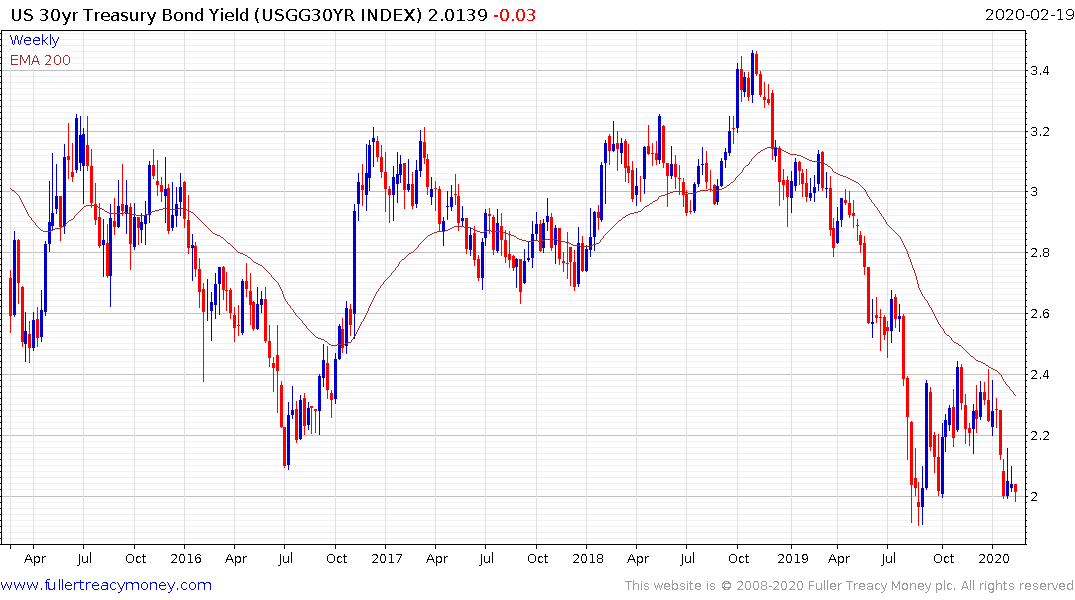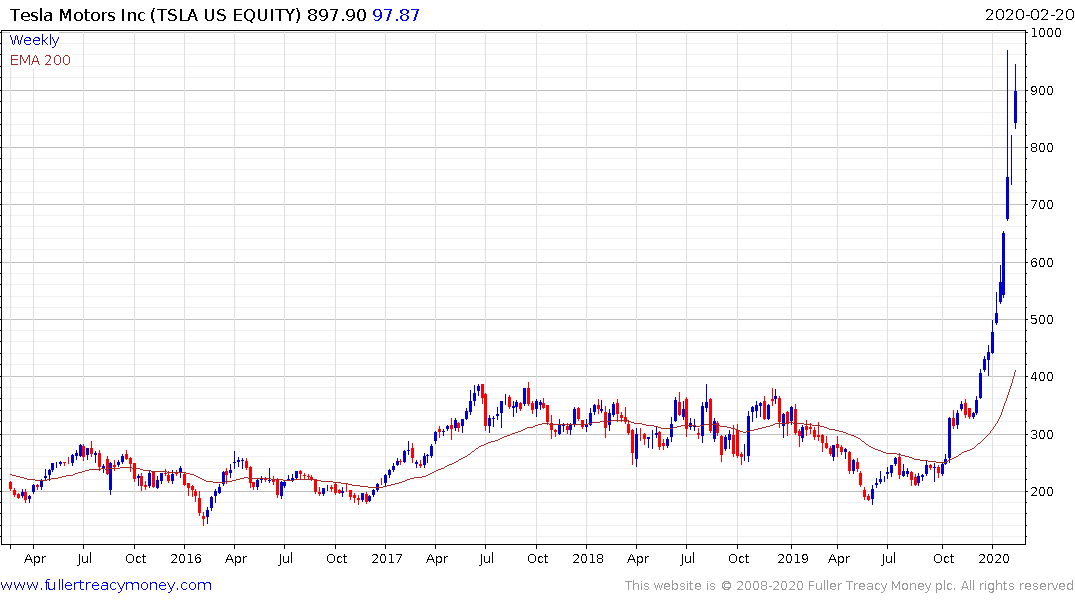Vanishing Spreads Are Ringing Alarms in Risky Debt Markets
This article from Bloomberg may be of interest to subscribers. Here is a section:
“What do you do with your cash?” said Luke Hickmore, investment director at Aberdeen Standard Investments in Edinburgh, where he helps run a number of bond funds. “Leaving it standing there makes no sense and the experience over the last 10 years is that there is no pain in buying bonds. Learnt behavior is that it is safe. Inflation is nowhere and central banks start buying every time yields go higher.”
Heavy demand for tax-exempt income drove yields on even the riskiest municipal bonds to 3.58% on Friday, the lowest since Bloomberg’s records began in 2003. The influx has compressed spreads across the country and caused some debt in high-tax states like California and New York to yield less than top-rated benchmark securities. Municipal mutual funds have reported inflows for the 58th straight week on Feb. 13.
With 30-year debt yielding 1.92% in the USA, 1.59% in Australia, 1.42% in Canada, 1.05% in the UK. 0.36% in Japan and 0.04% in Germany bond investors, and particularly pension funds, are at a loss for where to invest to generate the returns necessary to meet their future liabilities.

The answer has generally been to increase leverage and/or compensate for record low yields by investing in high volatility sectors like venture capital and private equity. The basic premise of modern portfolio theory is the expected return from one asset class can balance out the volatility in another. The longer momentum in the bond markets persists, the stronger the rationale for investing in highly speculative ventures to offset the compression in yield.

When we apply that logic to the strong commonality, right across the renewable energy sector, I believe we have an explanation for what is going on. There is also the additional rationale that the moral imperative gained from saving the planet, will provide cover for investments that go awry if the ventures are not successful and fail to generate the required return.


